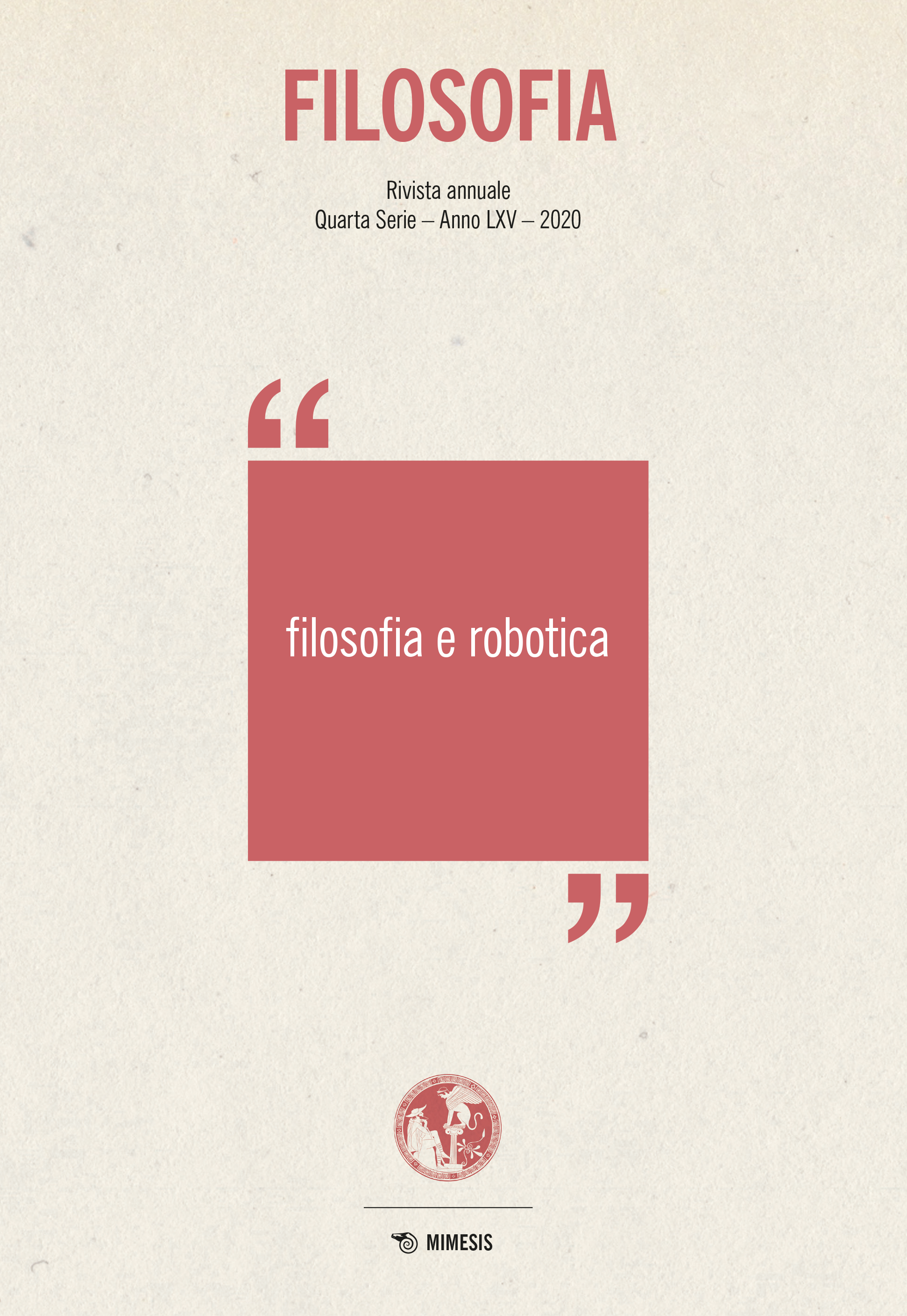Macchine Guerriere Autonome
DOI:
https://doi.org/10.13135/2704-8195/5078Parole chiave:
laws, robotics, warfare, AIAbstract
Artificial Intelligence is an epochal revolution, a real evolutionary leap in humanity, in both the cognitive sphere and that of material and social consequences. In the military, its enormous impact is looming: the Lethal Autonomous Weapons Systems introduce changes in the art of war to make the advent of firearms pale between the fifteenth and sixteenth centuries, and in this sense they can be equated only to nuclear weapons. The essay aims to examine the issues and problems inherent in the advent of autonomous weapons, not even remotely piloted by humans, in both the tactical and strategic spheres. We also try to consider the problem from the point of view of both classical war theory and international law. The positive effects of this technological revolution are discussed in the course of the text and do not constitute a separate chapter.
Downloads
Riferimenti bibliografici
Alfieri, L. 2012. La stanchezza di Marte: Variazioni sul tema della guerra. Seconda edizione accresciuta. Perugia: Morlacchi Editore.
Antal, J. 2010. L’US Army punta sui robot. in: “Rivista Italiana di Difesa”, n. 12, pp. 57- 61.
Aron, R. 1970. Paix et guerre entre les nations, 6^ ed. Paris, Calmann-Lévy, 1968, tr. it. Pace e guerra fra le nazioni, Milano, Edizioni di Comunità.
Balistreri, M. 2011. Superumani: Etica ed Enhancement. Torino. Espress Edizioni.
Balistreri, M. 2015. Umanità e integrità del soldato potenziato: alcune riflessioni di bioetica militare, in “Etica & Politica / Ethics & Politics”, XVII, n.1, pp. 127 – 146.
Balistreri, M. 2017. Robot Killer. La Rivoluzione Robotica nella Guerra e le Questioni Morali, in “Etica & Politica / Ethics & Politics”, XIX, n. 2, pp. 405 – 430.
Boatto, A. 1992. Della guerra e dell’aria, Genova, Costa & Nolan.
Bobbio, N. 1997. Il problema della guerra e le vie della pace, II ed., Bologna, il Mulino.
Chamayou, G. 2014. Théorie du drone, La Fabrique, 2013, tr. it. Teoria del drone: Principi filosofici del diritto di uccidere, Roma, Derive Approdi.
De Landa, M.1996. War in the Age of Intelligent Machines, [S.l.], Urzone Inc., 1991, tr. it. La guerra nell’era delle macchine intelligenti, Milano, Feltrinelli.
Fiocco, G. 2002. Dai fratelli Wright a Hiroshima: Breve storia della questione aerea (1903-1945), Roma, Carocci.
Hillman, J. 2005. A Terrible Love of War, Penguin Press, 2004, tr. it. Un terribile amore per la guerra, Milano, Adelphi.
Gaza, C. R., 2014. Morire, uccidere: L’essenza della Guerra, Milano, Franco Angeli.
Iaria, A. 2018. Da autonomi a completamente autonomi: l’applicazione dell’Intelligenza Artificiale nei sistemi d’arma autonomi (LAWS) in “Rassegna della Giustizia Militare: Rivista della Giustizia e della Procedura Penale Militare”, n. 6, pp. 24-32.
<http://www.difesa.it/Giustizia_Militare/rassegna/Pagine/default.aspx>
von Clausewitz, C. Vom Kriege. 2007. tr. it. Della guerra, nuova edizione a cura di Gian Enrico Rusconi, Torino, Einaudi.
##submission.downloads##
Pubblicato
Come citare
Fascicolo
Sezione
Licenza
Filosofia applica una licenza Creative Commons Attribution 4.0 International License a tutto il materiale pubblicato.



